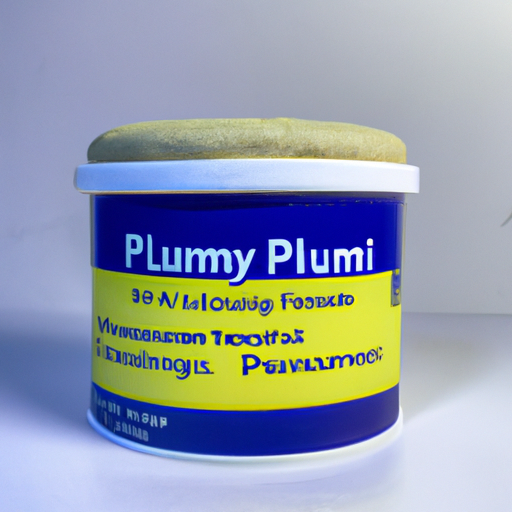So you’ve got a tube of dielectric grease sitting in your toolbox, and you’re wondering if it could do double duty as plumbers grease. After all, they’re both greases, right? Well, you’re in luck because we’re here to shed some light on this topic for you. In this article, we’ll explore whether dielectric grease can be used as plumbers grease, highlighting the similarities and differences between the two greases, and providing you with all the information you need to make an informed decision. So let’s get started and find out if your tube of dielectric grease can come to the rescue for your plumbing needs!
Can Dielectric Grease Be Used For Plumbers Grease
What is Dielectric Grease?
Dielectric grease, also known as silicone grease, is a translucent, nonconductive substance used to sealing and lubricating electrical connections. It is composed of silicone oil and a thickening agent, such as silica. Dielectric grease is well-known for its ability to prevent corrosion, enhance electrical conductivity, and offer protection against moisture and other contaminants. It is commonly used in a variety of applications, including automotive, electrical, and marine industries.
What is Plumbers Grease?
Plumbers grease, on the other hand, is a specific type of lubricant designed for use in plumbing applications. It is commonly used to lubricate and seal rubber gaskets, O-rings, and other plumbing components to prevent leaks and ensure smooth operation. Plumbers grease, also known as silicone plumbers grease or faucet grease, is typically made of a non-toxic silicone-based compound. Its primary purpose is to enhance the performance of plumbing equipment and reduce the risk of leaks or failures.
Comparison of Properties
While both dielectric grease and plumbers grease are silicone-based compounds, their intended purposes and properties differ significantly. Dielectric grease is primarily focused on electrical applications, whereas plumbers grease is formulated specifically for plumbing tasks. Dielectric grease exhibits excellent electrical insulation and conductive properties, making it ideal for preventing corrosion and enhancing electrical conductivity. In contrast, plumbers grease excels in lubricating and sealing plumbing components to prevent leaks and provide smooth operation.
Compatibility with Plumbing Materials
Dielectric grease is generally compatible with a wide range of materials commonly found in electrical applications, including rubber, plastic, metal, and glass. However, its compatibility with plumbing materials may vary. Plumbers grease, on the other hand, is designed to be compatible with various plumbing materials such as rubber, vinyl, and synthetic O-rings. It is important to note that each product may have its own specific compatibility information, so it is crucial to follow the manufacturer’s guidelines for usage.
Temperature Range
Dielectric grease is typically formulated to withstand a wide temperature range, often ranging from -40°F to 500°F (-40°C to 260°C). This wide temperature tolerance enables it to provide reliable protection and lubrication in both extreme cold and hot environments. Plumbers grease, while it may tolerate a wide range of temperatures, may have a more limited temperature range specifically tailored for plumbing applications. It is advisable to check the product specifications to ensure the specific temperature requirements of the plumbing task.
Water Resistance
Both dielectric grease and plumbers grease offer excellent water resistance properties. Dielectric grease is known for its ability to repel water and moisture, preventing corrosion and maintaining electrical conductivity. Similarly, plumbers grease is specifically designed to withstand exposure to water in plumbing systems. The water resistance capabilities of both products contribute to their effectiveness in their respective applications.
Chemical Resistance
Dielectric grease is generally resistant to a wide range of chemicals, making it suitable for various electrical environments. While it may exhibit good resistance to common household chemicals, each product may have its own specific resistance properties. Plumbers grease, on the other hand, is typically designed to be resistant to water-based chemicals commonly found in plumbing systems. It is important to check the compatibility of the specific grease with the chemicals it may come into contact with during plumbing operations.
Sealant and Lubricant Properties
Dielectric grease is predominantly used as a sealant and lubricant for electrical connections. Its nonconductive properties make it effective in preventing moisture ingress and stopping corrosion. Plumbers grease, conversely, is formulated primarily for lubrication and sealing in plumbing applications. Its purpose is to enhance the performance of rubber gaskets, O-rings, and other plumbing components, ensuring proper function and preventing leaks.
Application Methods
Both dielectric grease and plumbers grease can be applied using similar methods, such as hand application or using a brush. In electrical applications, dielectric grease is often used to coat electrical connectors, terminals, and spark plug boots. Plumbers grease, on the other hand, is typically applied to rubber gaskets, O-rings, and faucet components. It is important to follow the manufacturer’s instructions for proper application to ensure optimal performance and longevity of the grease.
Availability and Cost
Dielectric grease and plumbers grease are readily available at hardware stores, automotive supply shops, and online retailers. While the prices may vary depending on the brand and quantity, they are generally affordable for most users. It is advisable to compare prices and read product reviews to ensure you select a reliable and suitable grease for your specific application.
In conclusion, while dielectric grease and plumbers grease are both silicone-based compounds, they are designed for different purposes. Dielectric grease excels in electrical applications, providing corrosion protection, enhancing conductivity, and maintaining electrical connections. Plumbers grease, on the other hand, is tailored for plumbing systems, lubricating and sealing components to prevent leaks and ensure smooth operation. It is important to choose the appropriate grease for the intended task and consider the specific properties, compatibility, temperature range, and application requirements to ensure optimal performance and durability.




